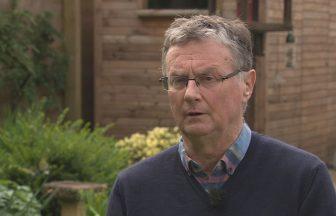Key Points
-
 Final report of independent Infected Blood Inquiry to be published on Monday
Final report of independent Infected Blood Inquiry to be published on Monday -
 In total, it’s thought about 2,900 people in the UK have died as a result of the scandal.
In total, it’s thought about 2,900 people in the UK have died as a result of the scandal. -
 Some 3,000 people in Scotland were infected with Hepatitis C through NHS blood or blood products in the 1970s through to 1991
Some 3,000 people in Scotland were infected with Hepatitis C through NHS blood or blood products in the 1970s through to 1991 -
 Some were also infected with HIV in the early 1980s
Some were also infected with HIV in the early 1980s -
 By the end of 1985, all Factor VIII products were heat-treated to kill the HIV virus.
By the end of 1985, all Factor VIII products were heat-treated to kill the HIV virus. -
 Scottish victims are among those travelling to London for the publication of the inquiry’s final report
Scottish victims are among those travelling to London for the publication of the inquiry’s final report
Scots infected with contaminated blood are travelling to London on Monday for the landmark publication of a report into what has been called “the biggest treatment disaster in NHS history”.
They are among thousands of victims who are now just hours away from finding out the truth about what happened after decades of campaigning.
The final report of the Infected Blood Inquiry will establish where responsibility lies and the extent of any cover-ups.
Some 30,000 people were infected with contaminated blood in the 70s and 80s and it is believed around 2,900 people died as a result of the scandal.
In Scotland, around 3,000 people were infected with Hepatitis C through NHS blood or blood products in the 1970s through to 1991.
Some were also infected with HIV in the early 1980s.
STV News spoke to some of the affected Scots who have waited more than 20 years to get justice.
Bruce Norval
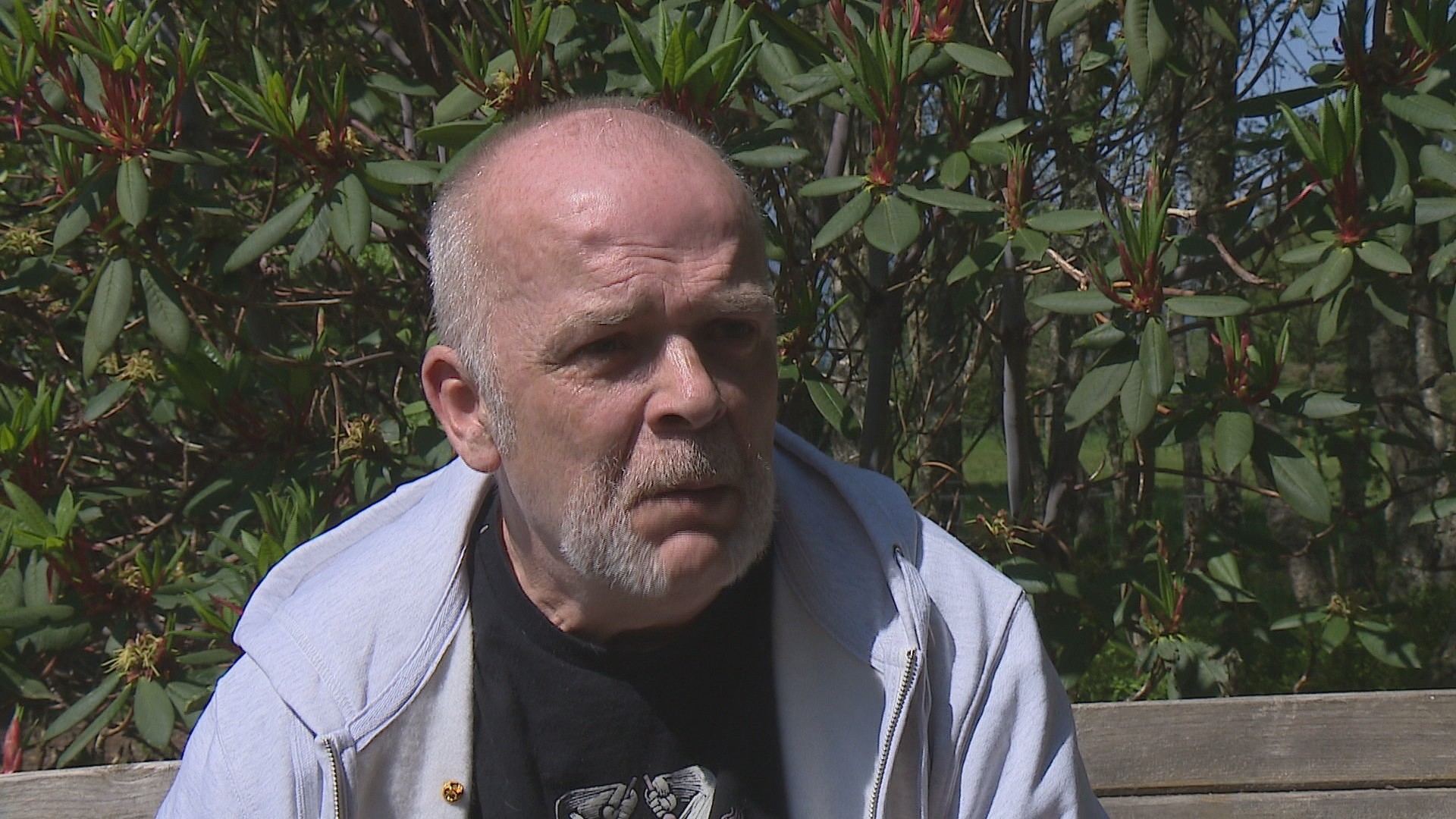 STV News
STV NewsBruce Norval from Inverness was diagnosed aged 23 with Hepatitis C from contaminated blood products.
“It was a holiday in the Isle of Arran,” he told STV News. “I remember that holiday because hepatitis produces a number of weird symptoms, and every time I went to vomit, still true to this day, I smell rhubarb.
“That whole holiday is tainted by the smell of rhubarb. I was somewhere between the age of five and six at the time. Since the inquiry started, I’ve discovered that that was probably when I got sick.
“Then a few weeks after my 18th birthday, the newspapers announced all haemophiliacs had Aids and my life changed forever. Being a small town, Inverness back then in particular, I couldn’t go out anymore. I was getting death threats. I was getting threats to violence.”
“People were making threats against my family, somebody threatened to fireball my dad’s shop. I realised I had to leave so eventually I ended up in London just looking for anonymity.”
Many victims were exposed to contaminated blood through transfusions, whereas others – including Bruce – were infected after receiving NHS treatment for haemophilia.
Bruce gave evidence to the Infected Blood Inquiry, along with his wife, and they and will be in London for the findings on Monday.
Bruce told STV News there is still an assumption that victims are partly responsible for their infections.
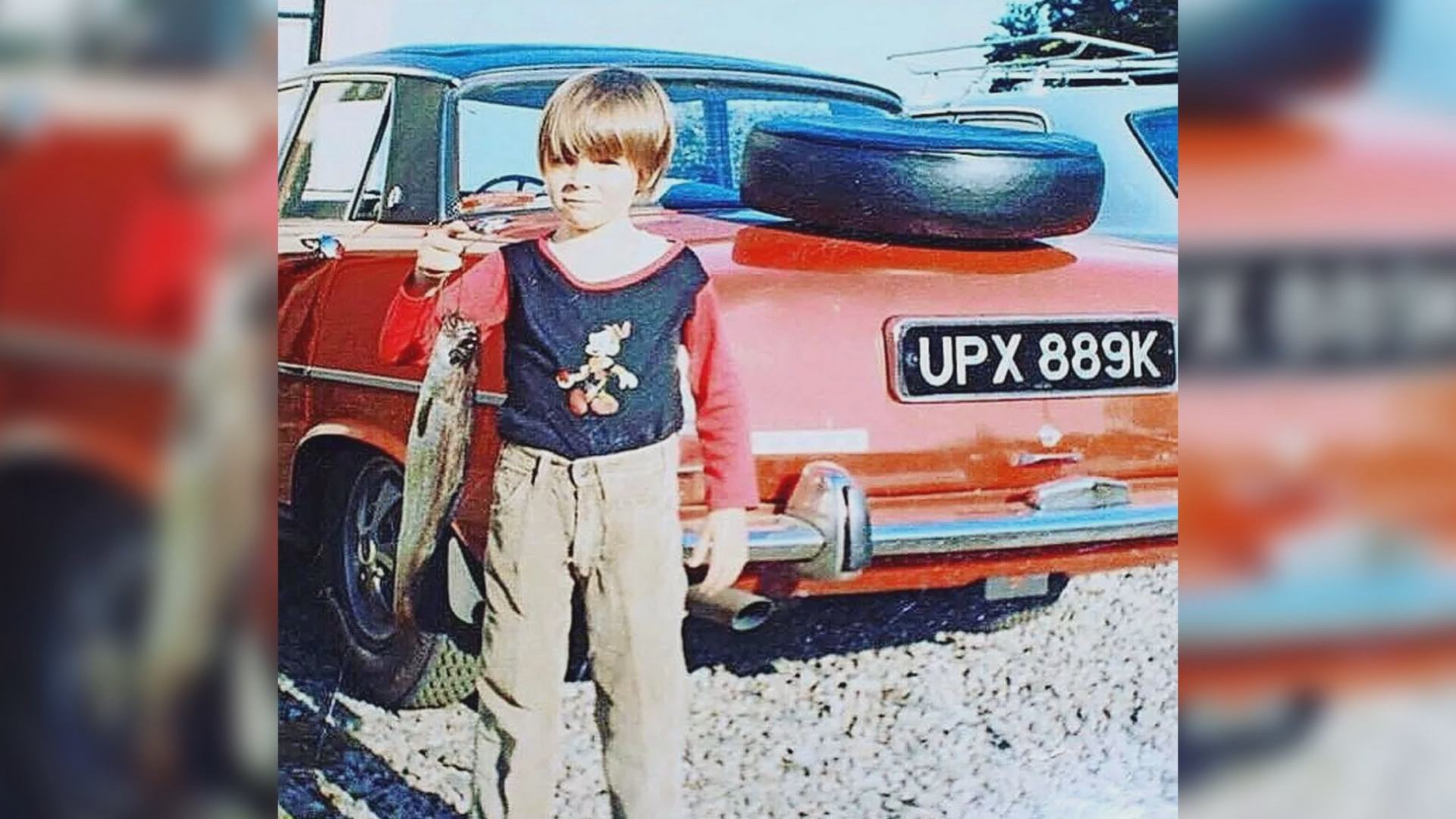 Bruce Norval
Bruce Norval“I was three. Some of the boys were three months old,” he said. “Some of the HIV victims never even got to be here. We had babies dying at three years old.
“This wasn’t our fault and the people that did it to us, knew they were doing it to us but we’ve had to carry the can for decades.
“Yet most people still live hand to mouth in unsuitable housing, with inadequate care, with inadequate support, frequently without anybody around them, even knowing why they’re ill and still having to live in secrecy because of the fear and the bigotry of others.”
Bruce hopes the inquiry’s final report will improve societal attitudes to those affected by the blood scandal.
“I have gone through an awful lot in the last couple of weeks waiting for the inquiry findings,” he said. “I thought that I had insulated myself against it, but in the last two weeks I’ve cried a lot. I’ve got angry. I’ve got upset.
“I’m finding myself getting a bit manic because I’m second guessing myself in relation to the evidence I gave to the inquiry – and the other evidence that I know that should be exposed by the inquiry – and the implications of that.
“The fact that governments held out for over a year after the compensation recommendations hasn’t helped because there’s no certainty in our lives.”
Gill Fyffe
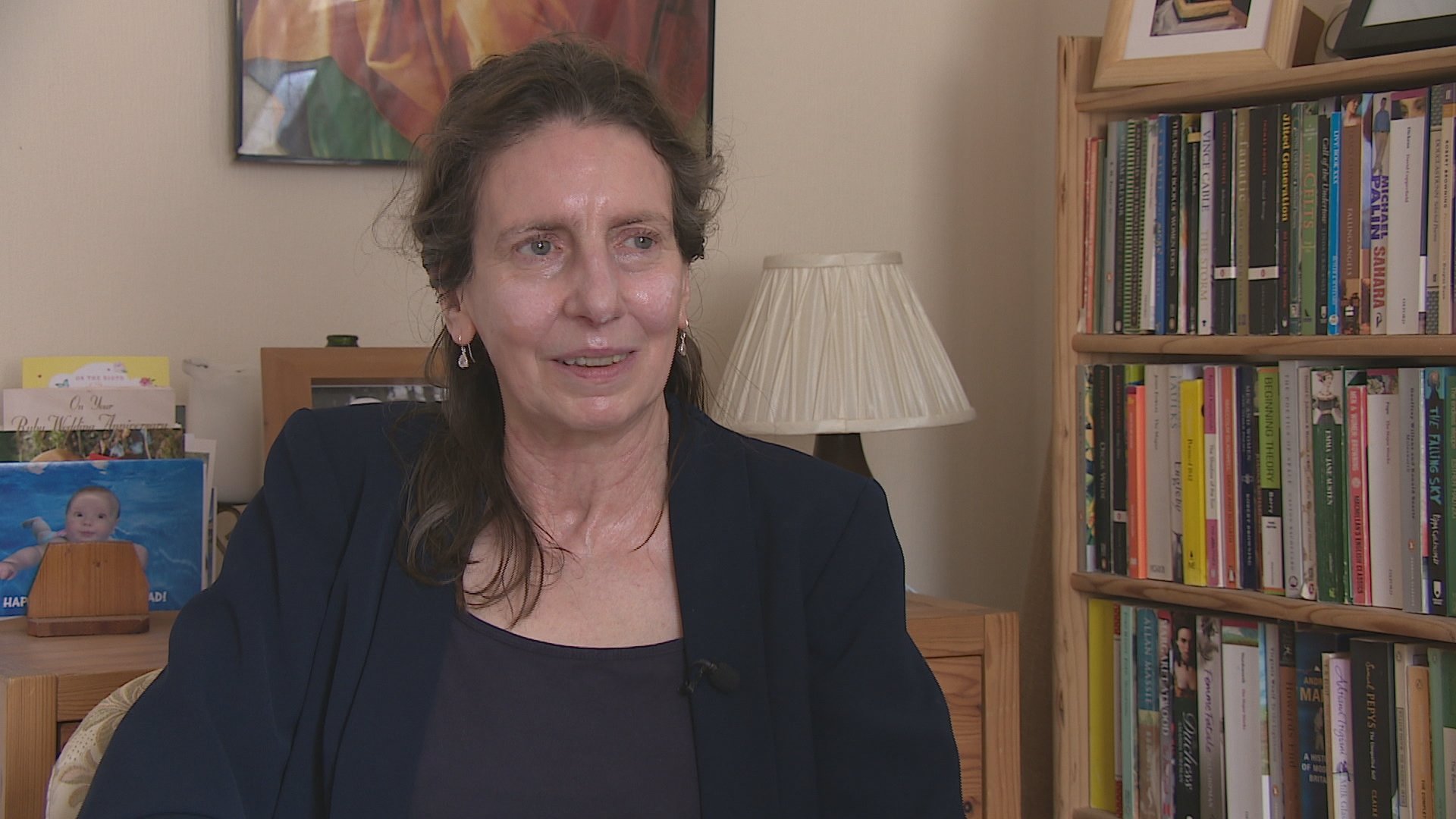 STV News
STV NewsGill Fyffe now has severe sensitivity to light following experimental treatment for Hepatitis C.
The consequences of that and of a transfusion given to her in 1988 following complications after childbirth continue to this day.
She said: “The doctor kept saying ‘but the blood is 100% safe’. Then he invited a consultant from the blood transfusion service to come and talk to me and he said it was 100% safe.
“We now know at that time everybody knew it wasn’t and that there was a problem with the blood supply.”
A former teacher and author, Gill was infected after giving birth at Dundee’s Ninewells Hospital in 1988. She found out she was infected by letter in 1995.
She said: “I had a little boy, my son was three and I went into hospital to give birth to my daughter and the birth was complicated and that’s really how I became involved in the scandal.
“Before I had the transfusion I looked to the future and it went on forever. After it went “that” far and it’s never really gone back.
“I just don’t have the same… it’s a funny thing… the human race needs to feel that we go on forever but that was taken away because it doesn’t really come back after a shock like that. I have been blessed with my family. They have been amazing.”
Gill thinks there should be compensation awarded to victims due to the impact the scandal has had on her family.
“My husband and I have no security,” she told STV News. “We have fought on minus my salary and so we had security before this happened and we’ve had to get used to living without it. Even for my children who are grown up now.
“Other families have suffered unbearable losses, those who have lost their children and parents, they have infected each other.
“Lots of families have become broken. This happens to people indiscriminately and some people can’t cope with it. It’s not fair, you’re not meant to be able to cope with something like this.
“So I think there should be compensation because I think it should give back what has been taken away. I don’t see it as a reward.
“I now have four grandchildren and another one on the way. I love it. I am the luckiest granny. They are all adorable. My favourite thing is when they all get together. This room does not look like this when they’re all together.
“The things that are important in life have not been taken from me which is why I am smiling. I massively feel for the people…there are some really sad stories at the inquiry. Every time we go we are all crying. Life goes on doesn’t it.”
Robert Viana-Ross
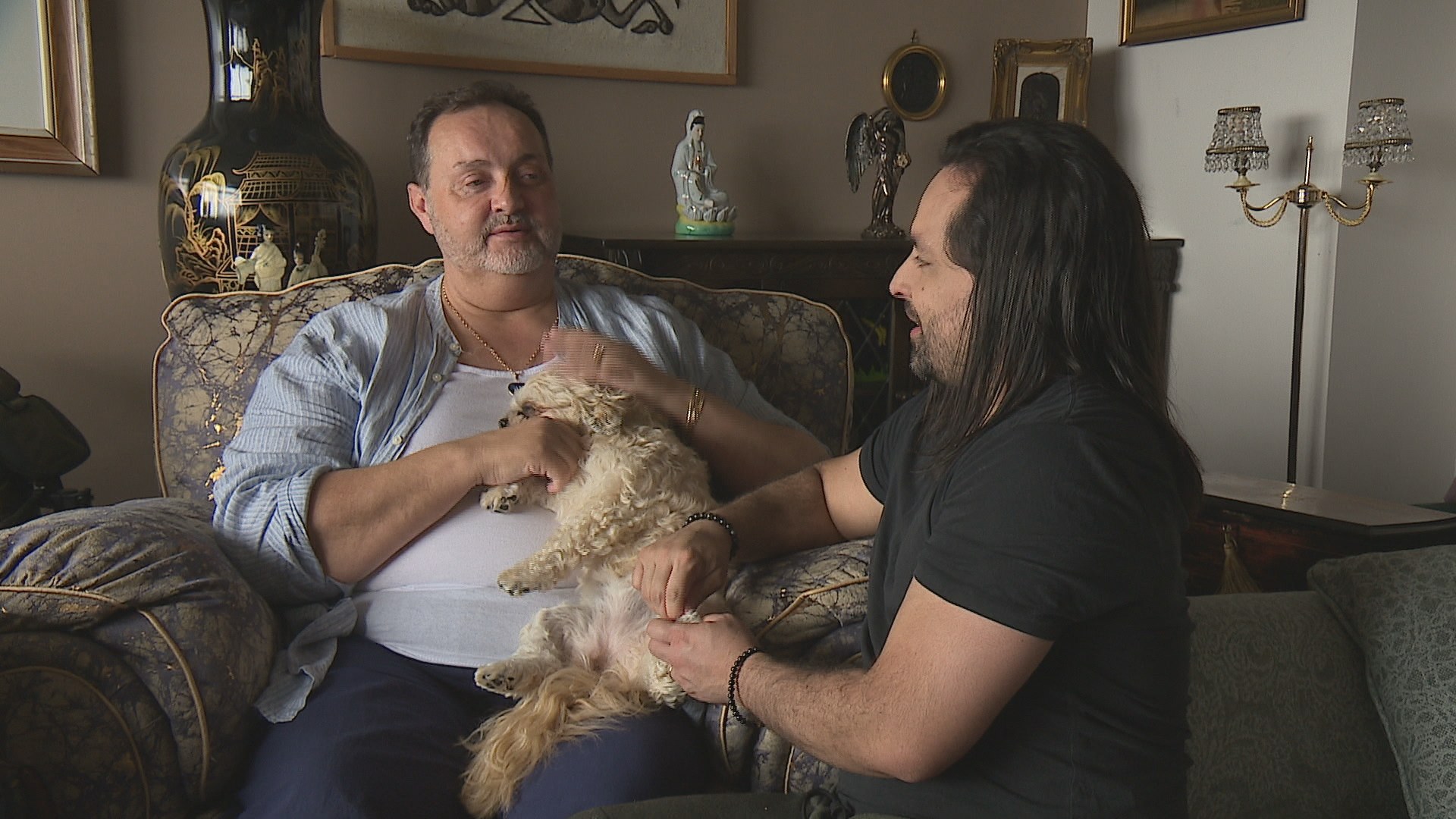 STV News
STV NewsRobert Viana-Ross had three injections of Factor VIII from the age of ten to 27. One of those was contaminated but he doesn’t know which one.
The 56-year-old haemophiliac, who lives in Tain, required dental surgery after cracking his tooth three days before he was due to fly out to New Zealand for a friend’s wedding in 1999.
Blood tests there revealed he had Hepatitis C – a condition he knew nothing about.
He told STV News: “The diagnosis shut me down completely. I wouldn’t let anybody come near me. I wouldn’t let people hug me and I just kept backing further and further away from people. I isolated myself. I was only in my 20s. I was still young. It was a very challenging time for me.
“Emotionally, it threw me into a very dark hole. You felt like you became almost like a plague victim when you would go into the hospitals for any kind of treatment. I noted that the outside of our files, mine in particular, had black and yellow stripes on it, which is a highly contagious warning.
“That’s a horrible thing when you’re sitting in a waiting room full of people and your file is the one with all of the contagion signs on the outside. There was absolutely no thought was given to how I felt about it and there was no support. You were left completely on your own.”
Regarding the publication of the blood inquiry report on Monday, Robert says he hopes lessons have been learned from the scandal.
“I’m not looking for a witch hunt,” he said. “I don’t think that’s going to benefit anybody. I hope, but there’s a very big hope with a huge exclamation mark on the top of it, because the reality of that lessons needs to be taken on board and changes are needed to never let this happen again.
“There needs to be checks and balances. People need to be secure when they go into the NHS and are treated by doctors. They need to feel safe. Nobody feels safe anymore, particularly we within the haemophilia community.
“We were experimented on. Very clearly experimented on if you look at the evidence to the inquiry. People were set aside as if we were second class citizens.
“The bottom line is they have to pay. They have to pay, and it has to be enough that I don’t want to think about what my husband has to do when I die because I don’t know how long I’ve got left. I don’t know my limits because of the damage done.
“The timeframe between them discovering I had the virus to when I actually originally had the treatment is approximately 30 years. I lost my home, my savings, everything I’d put aside for the future all. It’s only now I’m looking to a future that potentially will give me some comfort.”
Follow STV News on WhatsApp
Scan the QR code on your mobile device for all the latest news from around the country


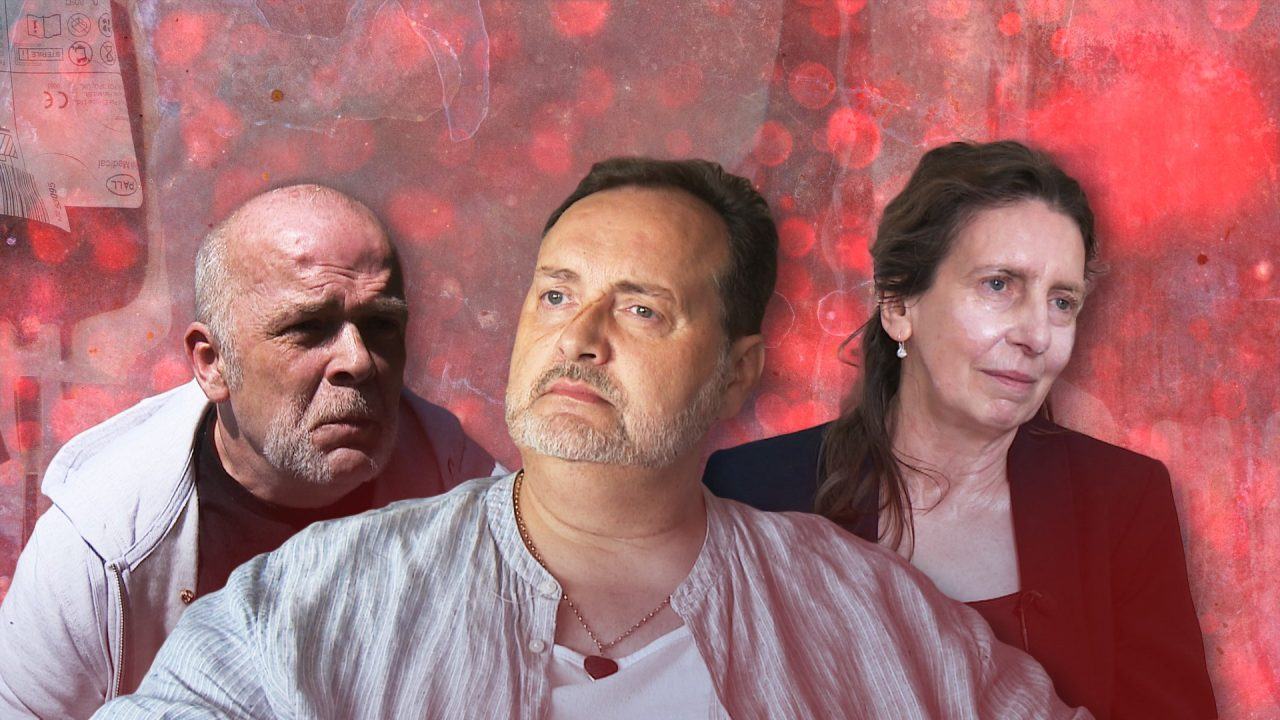 STV News
STV News